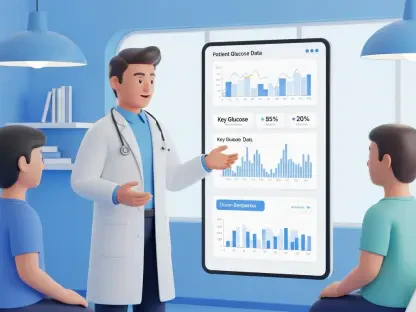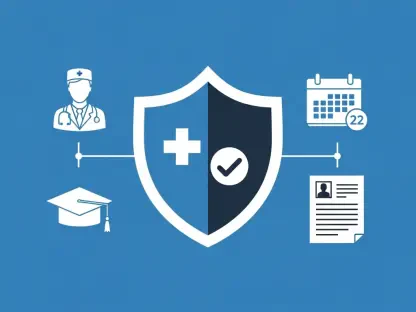In a significant move to leverage technology in public health, the World Health Organization (WHO) has introduced its “Artificial Intelligence in Public Health Readiness Assessment Toolkit 2.0”. This initiative represents a strategic effort to integrate artificial intelligence (AI) across global healthcare systems, with the goal of enhancing efficiency, accessibility, and overall public health outcomes. Developed in collaboration with the Pan American Health Organization (PAHO) and the Inter-American Development Bank (IDB), the toolkit offers a comprehensive framework for countries to gauge their readiness for incorporating AI in healthcare. Spanning 62 pages, the report aims to provide a thorough and structured approach to assessing various facets of AI integration. The toolkit’s framework is organized into ten sections, each addressing critical components such as infrastructure, data management, public engagement, workforce development, evaluation, implementation, and funding. To ensure a holistic understanding, the toolkit is also linked to a detailed policy document that outlines key concepts and indicators for monitoring AI implementation and steps to enhance interoperability. This initiative aligns closely with broader global trends in technological advancement within healthcare, aiming to prepare health sectors to leverage AI’s transformative potential responsibly.
Key Framework Components and Ethical Guidelines
A significant highlight of the toolkit is its alignment with PAHO’s Eight Guiding Principles of Digital Transformation in Health. These principles are designed to ensure that AI deployment in public health is ethical and equitable, thereby addressing potential disparities that technological implementation might exacerbate. The framework’s guiding principles and questions are meticulously crafted to cover all essential aspects required for successful AI integration. This includes assessing existing infrastructure to determine its capacity to support AI technologies, which invariably facilitates informed decision-making when it comes to investing in technological upgrades. Furthermore, it dives deep into data management practices, emphasizing the importance of data integrity, security, and accessibility. Adequate data management is crucial not only for the effective functioning of AI systems but also for maintaining public trust.
Workforce readiness is another critical component, as the successful integration of AI technologies depends on the availability of skilled professionals who can operate and maintain these systems. The toolkit thus includes comprehensive guidelines on how to evaluate the current workforce’s capabilities and suggests pathways for skill enhancement and professional training. Equally important is the aspect of public engagement, which involves educating the community about AI’s potential benefits and addressing any ethical concerns they might have. This ensures that AI technologies are implemented in a manner that is transparent, inclusive, and broadly accepted by the public.
Global Initiatives and Investments in AI for Health
WHO’s initiative is not an isolated effort but part of a broader, global consensus on the potential of AI in enhancing public health outcomes. The document references other significant projects such as the National Institutes of Health’s (NIH) substantial investment of $130 million through the Bridge2AI project. This ambitious undertaking is aimed at accelerating the application of AI in biomedical and behavioral health research, demonstrating the high stakes and strong commitment from various global health bodies. Within the same purview, WHO has also previously launched the S.A.R.A.H. platform, which uses generative AI to provide health information in multiple languages, showcasing practical applications of AI in real-world public health scenarios.
These initiatives are complemented by efforts from other nations, underscoring a global movement towards the integration of AI within health systems. Notably, partnerships in the UK with leading AI companies such as OpenAI and DeepMind highlight the international recognition of AI’s transformative potential. While these global collaborations aim to fast-track the adoption of AI technologies in healthcare, they also focus on ensuring that these technologies are implemented responsibly and ethically. By dovetailing these collective efforts, the WHO toolkit is not just a framework for readiness but also a stepping stone towards a more integrated and globally synchronized approach to AI in public health.
Enhancing Readiness and Ethical Implementation
The World Health Organization (WHO) has launched its “Artificial Intelligence in Public Health Readiness Assessment Toolkit 2.0,” a pivotal step in using technology to improve public health. This initiative aims to integrate artificial intelligence (AI) into global healthcare systems to boost efficiency, accessibility, and overall health outcomes. Developed with the Pan American Health Organization (PAHO) and the Inter-American Development Bank (IDB), the toolkit provides a detailed framework for countries to assess readiness for AI adoption in healthcare. The 62-page report offers a systematic approach to evaluating various aspects of AI integration.
The toolkit is divided into ten sections, each focusing on critical areas like infrastructure, data management, public engagement, workforce development, evaluation, implementation, and funding. To provide a comprehensive understanding, the toolkit is linked to a policy document outlining key concepts and indicators for AI implementation and steps to enhance interoperability. This initiative aligns with global trends in technological advancement in healthcare, aiming to prepare health sectors to harness AI’s transformative potential responsibly.









